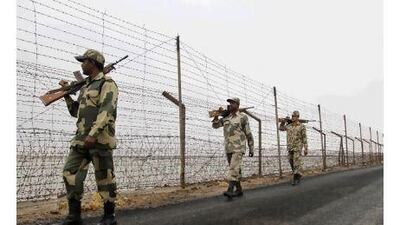As one who does not follow the nuances of Pakistani politics, I was surprised at the news of that country giving "most favoured nation" status to India (Pakistan opens trade door to India, November 3).
I was also delighted. This is not only a powerful political symbol but could, if properly put into effect, also help the economies of both countries.
The problem is that the military forces of India and Pakistan have flourished and gained power by constant sabre-rattling and a highly militarised border.
So there will be opposition to more trade from the military, and from protectionist industries as well. But this is an excellent start.
Peter Burrell, Doha
US reveals its deep-rooted bias
I refer to Unesco awards membership to Palestine; US to withhold funding (November 1).
This just shows how deep-seated and institutionalised is the anti-Palestinian current running through US society. How could a country vow to halt all Unesco funding if that particular organisation includes Palestine in its family of nations?
Adil Ali, Abu Dhabi
Photo showed amazing growth
Thank you for the article and accompanying picture When Abu Dhabi had 30 cars (November 1).
As a former UAE resident now in Nova Scotia, Canada, I talk to Canadians about the unbelievable change in the UAE in just 40 years.
Few people know anything about the UAE except to compare it to Western countries in 2011. Lacking understanding, context or perspective makes criticism easy.
I feel I have an insight into the positive aspects of the UAE's people and potential and I try to encourage people to see how Sheikh Zayed created the UAE, instilled his values, and created a vision. The picture and article will be a great source.
Tom Pattillo, Canada
What an amazing photo. I wish we could see time-lapse photography, from the air, showing Abu Dhabi and Dubai year-by-year since the country was created 40 years ago. Few places on earth can have grown so fast and so well.
Allan DeSouza, Abu Dhabi
Common sense, plus a joke
My girlfriends and I read Reema Al Ahbabi's column Who has style when everyone owns the same handbag? (November 3), out loud to each other over coffee.
What a lively and sensible point of view she has. And to make sure the article wasn't too solemn, a good joke at the end. Thank you for publishing that.
Molly Tibadeaux, Dubai
Pledges of change are only promises
So Bashar Al Assad has promised to withdraw his troops and release prisoners, has he (Assad agrees to take army off streets, November 1)? I'll believe it when I see it.
And if by some shocking surprise he were to reverse his approach, what would happen to the criminals in low and high places responsible for the murder, beatings, and other crimes of the last months - to say nothing of the preceding years?
Nabil Sharif, Dubai
Your story Saleh on 'verge of stepping down' (November 1)reminds me of a dozen similar stories we have seen about the Yemeni president this year.
Why does anyone believe anything this man says? Actions speak louder than words.
Dave Remski, Abu Dhabi
Pay-TV has little chance to grow
Only eight per cent of Arab-world households with TV actually pay for pay-TV service, according to your story Piracy hijacks growth of pay-TV (November 1).
And the industry hopes to get to 10 per cent by the year 2016.
This cannot be considered a very encouraging business model, to say the least.
And if what's really restraining the growth of the industry is people stealing signals, the industry is in real trouble because this is not a problem that can be solved easily.
Here's why: cracking down on TV piracy in, say, Egypt, would be almost as unpopular as reducing the bread subsidy.
Claude Nabil, Abu Dhabi
Tintin film may not live up to hype
Steven Spielberg has put 28 years into his Tintin movie, says Directing Destiny (November 3).
But the reviews have been mixed. "Fairly enjoyable, rather bland," said The Guardian.
I fear that Mr Spielberg has let CGI special effects and the zest for violence overwhelm the charm of the comics. I hope I'm wrong.
Pieter Vlaminck, Dubai

